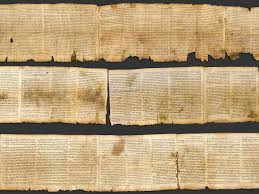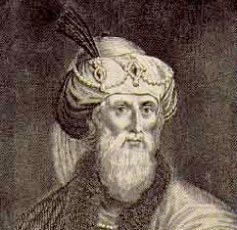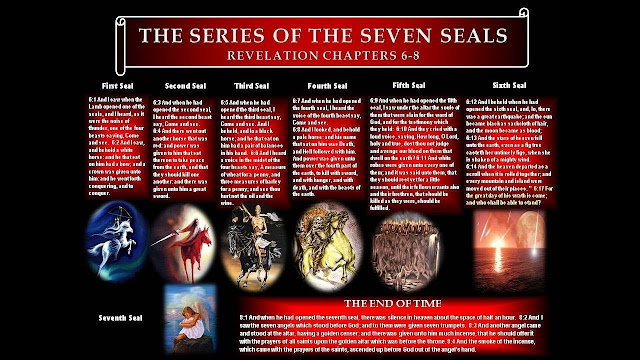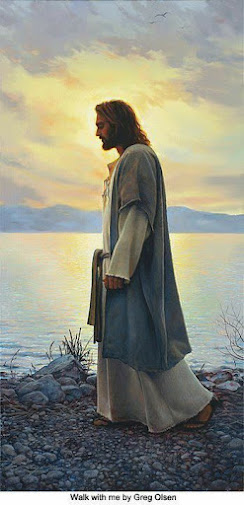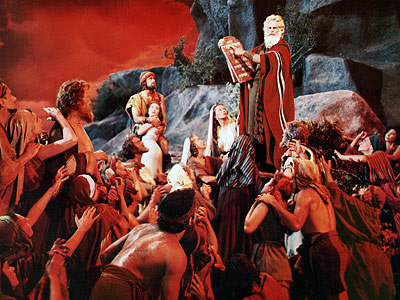Dead Sea Scrolls
Historical Background
The majority of the Dead Sea Scrolls were written between the 2nd century bce
and 2nd century ce. During this time, different Judean groups struggled to
obtain and maintain political and religious leadership. As primary sources, the
Dead Sea Scrolls shed light on these historical events and explore the ways that
various Jews of the Second Temple era related to the world around them.
These texts paint a picture of diversity and complexity within Jewish religious
life and philosophy in the Second Temple era. They have revolutionized our
understanding of the world from which rabbinic Judaism and early Christianity
emerged. While rabbinic and Christian texts were not
discovered among the ancient manuscripts, many of the thoughts and practices
discovered in the Scrolls resurface in later Jewish and Christian writings.
Before the discovery of the Dead Sea Scrolls, Second Temple Judea was
perceived as a monolithic society. Influenced by preconceived notions,
scholars mistakenly thought this idea of uniformity was supported in
relevant primary sources, such as Josephus Flavius and other Greek and Roman
authors, the New Testament Gospels, and rabbinic texts. In actuality, these
sources offer a picture of diversity which can now be identified and
supported by the Dead Sea texts. Specifically, these works allude to a
number of different Jewish sects, such as the Pharisees, Sadducees, and
Essenes.
The Scrolls clarify our understanding of the fundamental differences between
these sects and show just how contrasting their various worldviews and
practices actually were. All of the ancient Jewish groups seem to have
agreed about the centrality and importance of the Bible, although their
conceptions of sacred literature may have differed. On the other hand, the
non-biblical texts show profound discrepancies in the ways that the
different groups interpreted their Scripture and obeyed its guidelines. They
further our knowledge of ancient biblical interpretation and the effect of
historical events on religious life and ideas. The texts shed light on
philosophical disputes about issues such as the Temple and priesthood, the
religious calendar and the afterlife. More practical disputes were focused
on everyday law and observance.
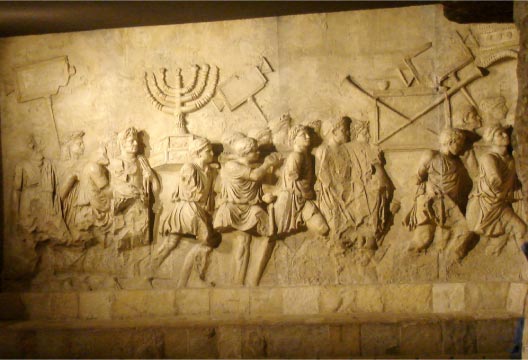
These profound societal debates took place at the peak of the colonial
ambitions of the Greek and Roman Empires, against the backdrop of invasion
and foreign intervention, from the conquest of Alexander the Great to the
Bar Kokhba Revolt against Rome. Many of the Scrolls were written during the
hundred years of Judean independence under the rule of Jewish high priests
and kings of the Hasmonean dynasty. Domestic and international political
unrest supported the notion of the world’s looming destruction. This is the
historical context that shaped the writing of the Scrolls and also led to
the emergence of Christianity and rabbinic Judaism.


Jun 18
Josephus on the Essenes
Josephus’s commentaries on the laws and characteristics of the Essene community have been invaluable to scholars studying ancient Jewish laws and customs.
Dec 28
New Dead Sea Scroll Caves?
Archaeologists have identified two new caves that may have once held Dead Sea Scrolls. discovery of the first Dead Sea Scrolls in a remote Judean Desert cave in 1947 is widely considered the greatest archaeological event of the twentieth century. Bedouin treasure hunters and archaeologists ultimately found the remains of hundreds of ancient scrolls. These fragile pieces of parchment and papyrus, including the oldest existing copies of the Hebrew Bible, were preserved for two thousand years by the hot, dry desert climate and the darkness of the caves where they were placed. The scrolls provide an unprecedented picture of the diverse religious beliefs of ancient Judaism, and of daily life during the turbulent Second Temple period when Jesus lived and preached. The Archive
As part of the conservation efforts to preserve the Scrolls for future generations, the IAA has initiated the Leon Levy Dead Sea Scrolls digitization project. Using the most advanced and innovative imaging technology, each Scroll fragment is imaged in various wavelengths and in the highest resolution possible then uploaded to the Digital Library. For the first time ever, the Dead Sea Scrolls archive is becoming available to the public online.
dead sea scrolls bible translation
dead sea scrolls summary
read the dead sea scrolls
As part of the conservation efforts to preserve the Scrolls for future generations, the IAA has initiated the Leon Levy Dead Sea Scrolls digitization project. Using the most advanced and innovative imaging technology, each Scroll fragment is imaged in various wavelengths and in the highest resolution possible then uploaded to the Digital Library. For the first time ever, the Dead Sea Scrolls archive is becoming available to the public online.
